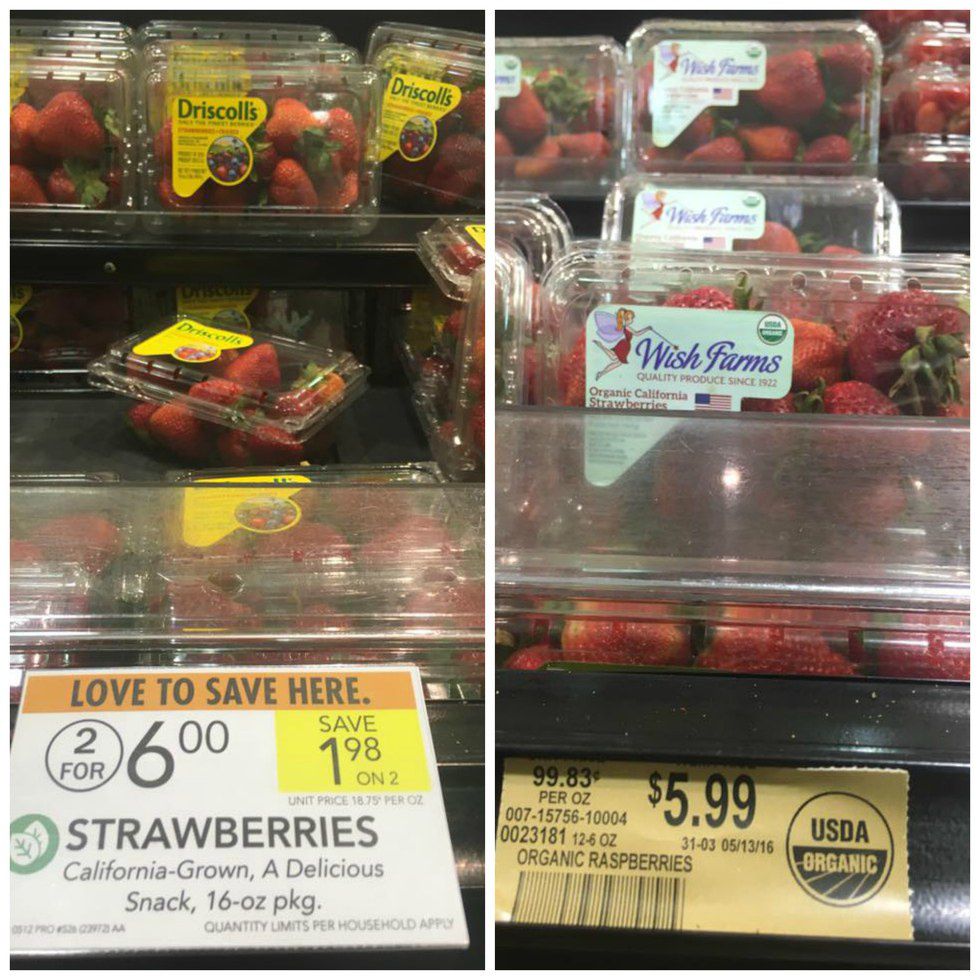"The discovery of agriculture was the first big step toward a civilized life."
-Arthur Keith
Many consumers question which is the healthier choice, Organic or Non-Organic?
Would you know the answer to this question? Have you done your own research to understand what you are consuming instead of jumping on the bandwagon? Also, were the sources reliable such as Enough Movement, Monsanto, American Farm Bureau, or The Department of Agriculture? If you have not allow me to enlighten you.
As an agriculturalists, I know the concerns that the consumers have. Considering niche marketing has become a popular technique in the market it has caused individuals to become fearful of where their food comes from and what exactly is in their food. Niche marketing is simply focusing on a point that the customer wants to make their product the more desirable item. This causes this product to be sold before the other product regardless of the price. For an example, a gallon of milk says, "Organic." Well, of course, someone who rather have this product instead of a regular gallon of milk because it sounds healthier, right? Wrong.
It is not healthier for you. So, what is the difference?
Organic Agriculture:
- Only use approved materials from The Department of Agriculture
- Does not use genetically modified ingredients in feed. All feed is organic.
- Receives annual onsite inspections
- Provide access to the outdoors so that animals can exercise their natural behaviors
- Separate organic food from non-organic food
- Does not use medication to treat their animals
- Use pesticides
Those all seem like pretty great qualities in food, but what about Non-Organic?
Non- Organic Agriculture:
- Receives multiple inspections through the year
- Provides the animals with a safe environment
- Protects the animals from diseases
- Gives medication to animals when needed
- Use pesticides
- Produces higher yields
- More affordable
Well, Non-Organic does not seem as bad either... Not only is Non-Organic healthy for you, but the animals have been treated properly to ensure your safety. For an example, chicken house workers wear protective clothes and footwear before entering the chicken. This prevents contact of poultry inside the chicken house with diseases. Also, with Non-Organic Dairy farms their cows are given antibiotics when sick. They are then placed on a withdrawal period meaning none of their milk ever touches the milk tank. It ensures that the cow will become better and the consumer has no worries.
Another main concern with Organic Agriculture vs. Non-Organic is the significant price difference. Keep in mind by the year 2050 we are expecting a 2.3 million population growth. This is going to increase the demand for food overall, but we need to make sure we are doing what we can to provide greater yields to meet those demands. For instance, Publix had strawberries Non-Organic for two for $6 and Organic one for $5.99. I think I'll add another penny for another pack.






















